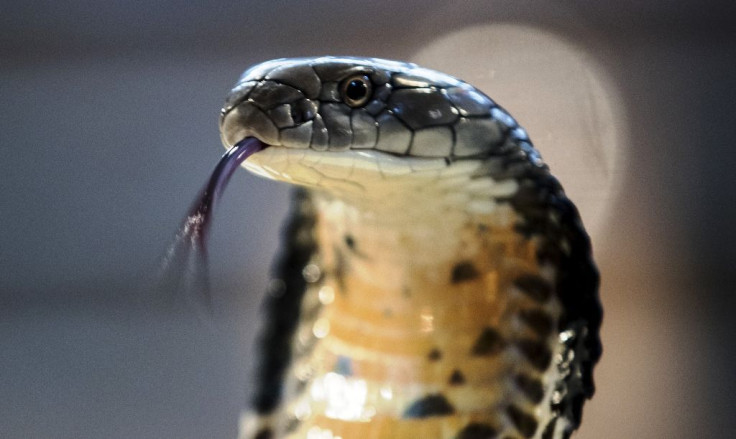Can Reptiles Be Imported To US? Customs Officials Seize King Cobras, Geckos At JFK International Mail Facility

Officials at the U.S. Customs and Border Protection (CBP) officers seized five juvenile king cobras and three geckos at the John F. Kennedy International (JFK) Mail Facility, the agency announced Tuesday. The incident took place June 29 and no one was injured during the seizure, the officials said.
According to a statement released by the CBP, officers carried out an inspection of express mail from Hong Kong and one of the packages was stated as “plastic tray.” However, after inspecting the contents of the package, they found juvenile cobras in it.
Read: Florida Mom Lets Snake Bite Baby As A Learning Lesson, Posts Video On Facebook
According to CBP's website, mammals, birds, amphibians, fish, insects, crustaceans, mollusks, reptiles, coral, and other invertebrates are subjected to prohibitions, restrictions, permit and quarantine requirements.
"The U.S. Fish and Wildlife Service is concerned with the importation, trade, sale, and taking of wildlife and with protecting endangered plant and animal species. Some wild species of dogs, cats, turtles, reptiles, and birds, although imported as pets, may be listed as endangered. Endangered and threatened animals and plants, migratory birds, marine mammals, and certain dangerous wildlife may not be imported without special federal permits," CBP noted.
During the June 29 incident, the officials got in touch with the U.S. Fish and Wildlife Service (FWS) to examine the package. After being opened, the officials saw live snakes placed in a styrofoam casing with holes in it for the snakes to breathe. The CBP handed over the package to FWS after seizing it.
King cobras can grow to 18 feet making them the longest of all venomous snakes, according to National Geographic.
“Their venom is not the most potent among venomous snakes, but the amount of neurotoxin they can deliver in a single bite—up to two-tenths of a fluid ounce—is enough to kill 20 people or even an elephant,” National Geographic stated.
Anthony Bucci, a spokesman for CBP explained about risks associated with shipping of such venomous snakes.
"Our officers along with FWS extracted the snakes," Bucci told Gothamist. "Of course there is always the potential for the snakes to bite those handling them. Fortunately, the seizure by CBP and turning over the process to FWS went without incident," he added.
Leon Hayward, acting director of CBP’s New York Field Operations said in the statement: “Our CBP officers perform numerous daily tasks to protect the United States from potential dangers. This seizure demonstrates our wide-ranging responsibility in protecting our borders and our partnership with the U.S. Fish and Wildlife Service."
Read: Snake Regurgitates Live Snake In Texas [VIDEO]
CBP stated on its website: “All snakes in the Boidae family (boas, pythons) are listed in CITES [the Convention on International Trade in Endangered Species of Wild Fauna and Flora] Appendix I or II. ... You must import or export your pet boa through a designated port unless you have received a port exception permit. You must notify the FWS wildlife inspection office at the port of entry or exit at least 48 hours in advance, present our declaration form to the wildlife inspectors, and receive clearance from us prior to export or at the time of import. We will validate any U.S. CITES permits during this clearance process.”
© Copyright IBTimes 2025. All rights reserved.






















